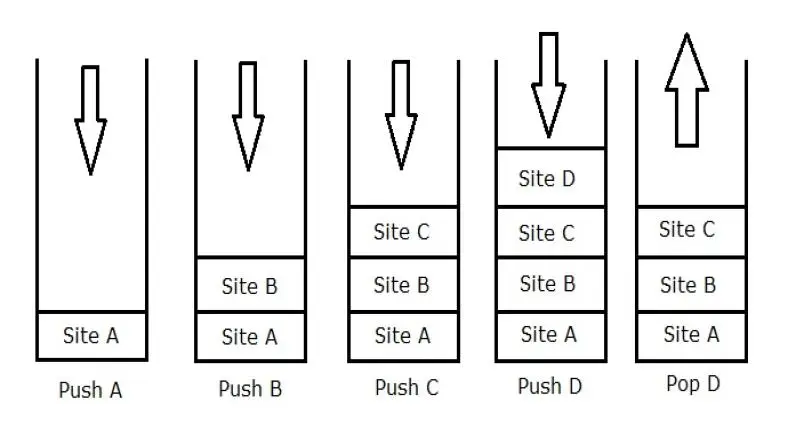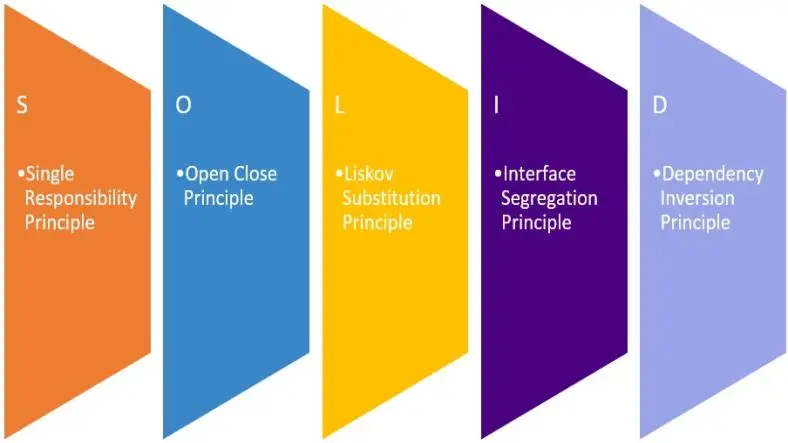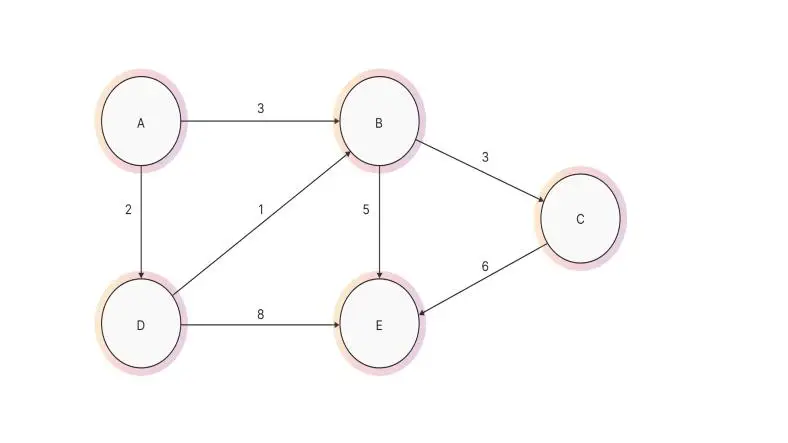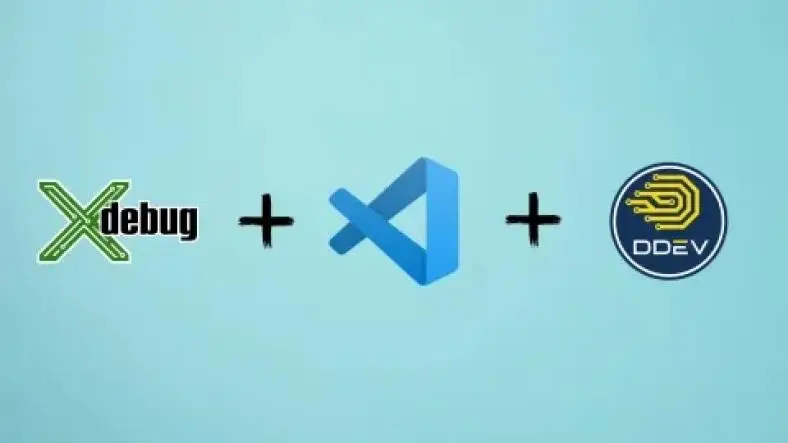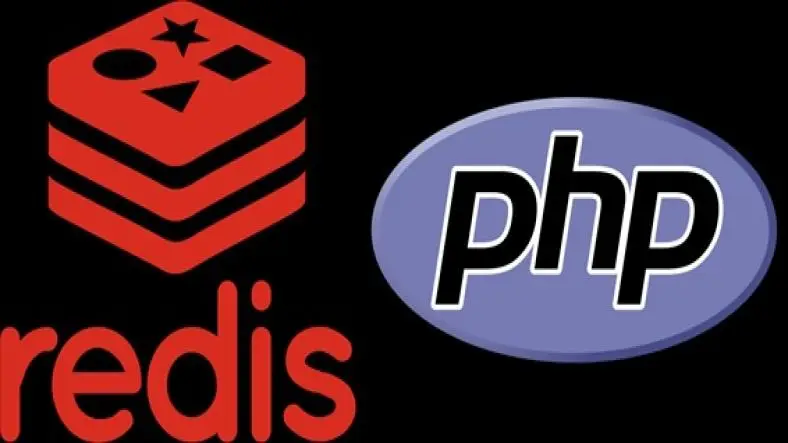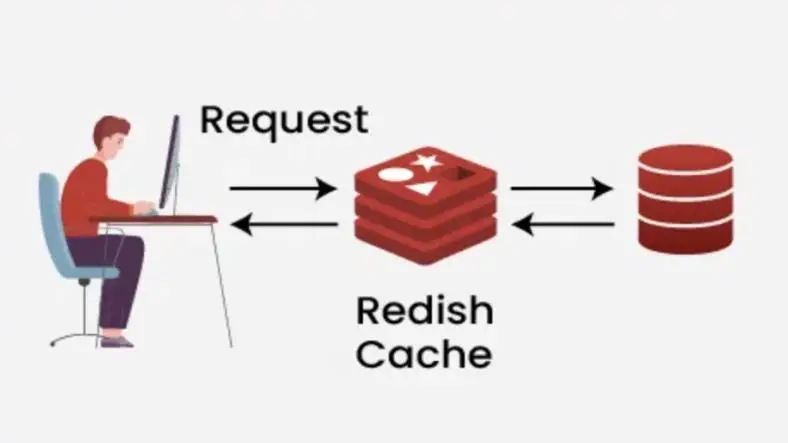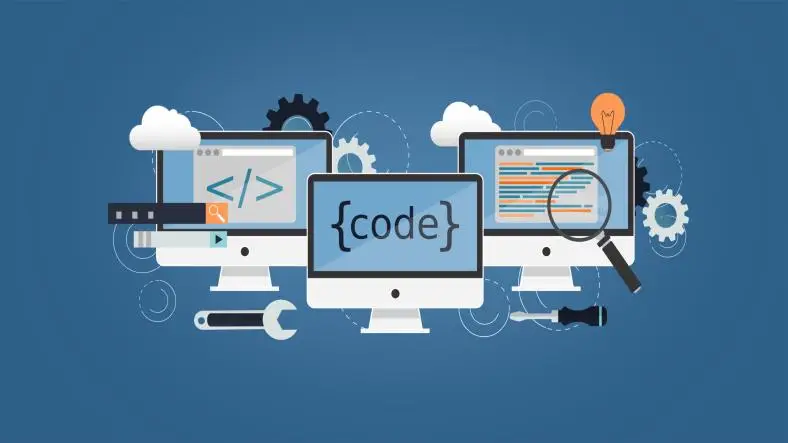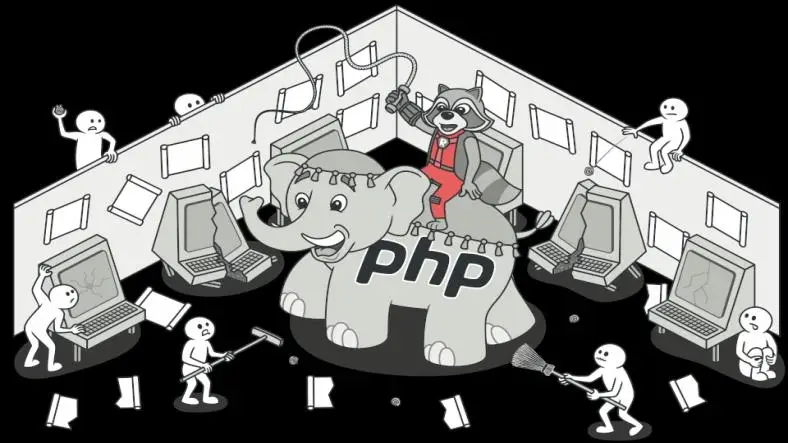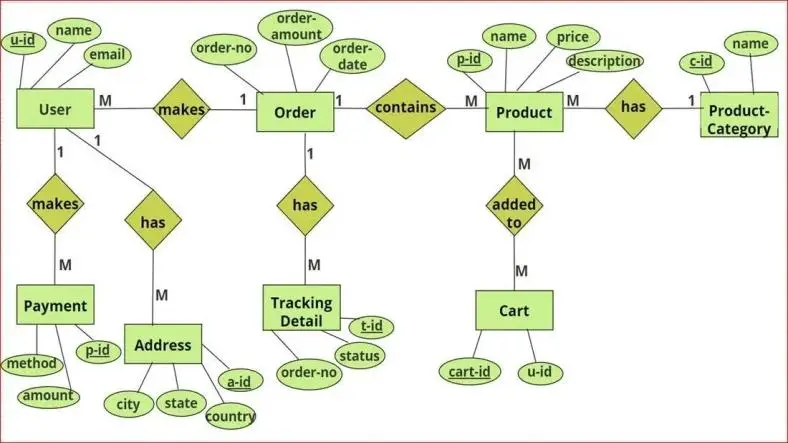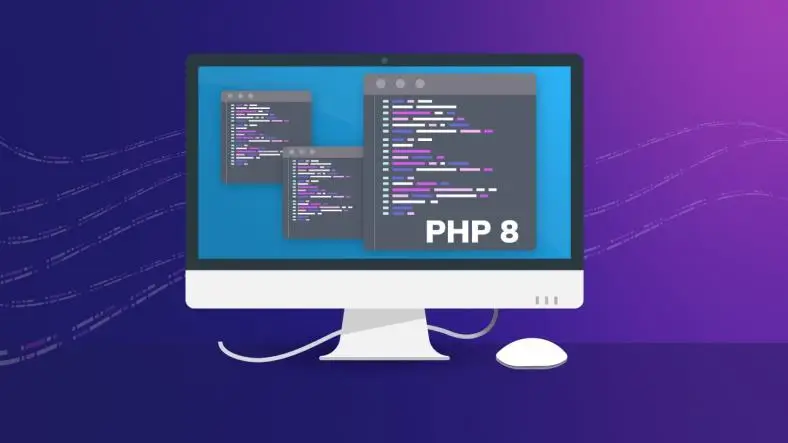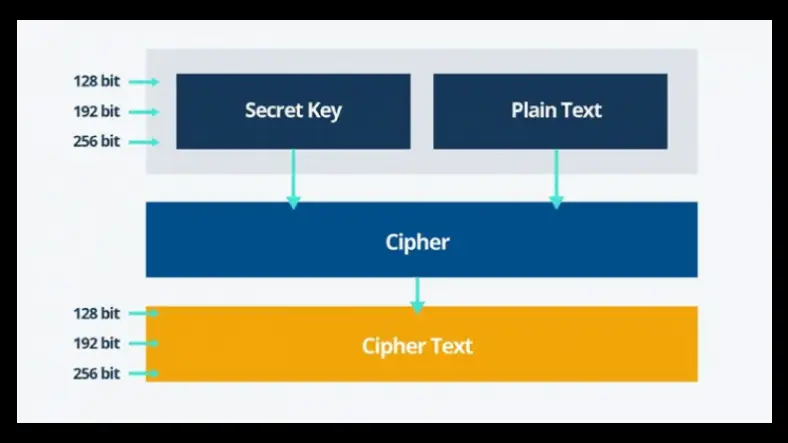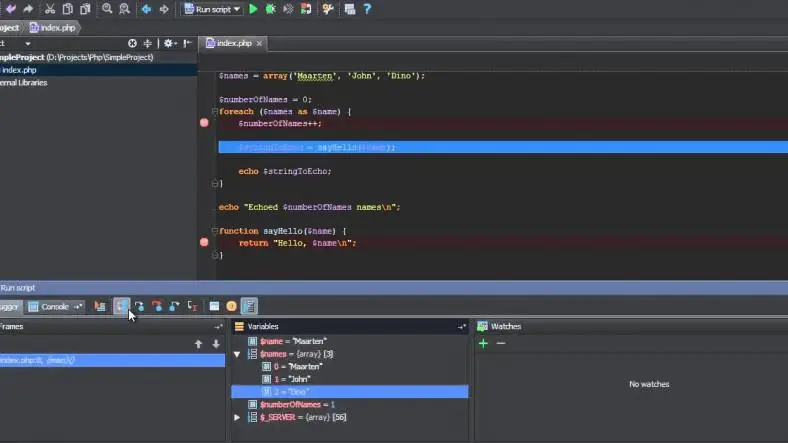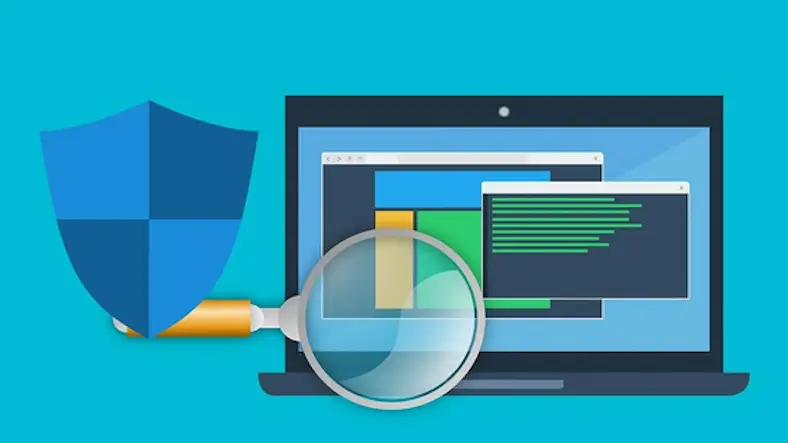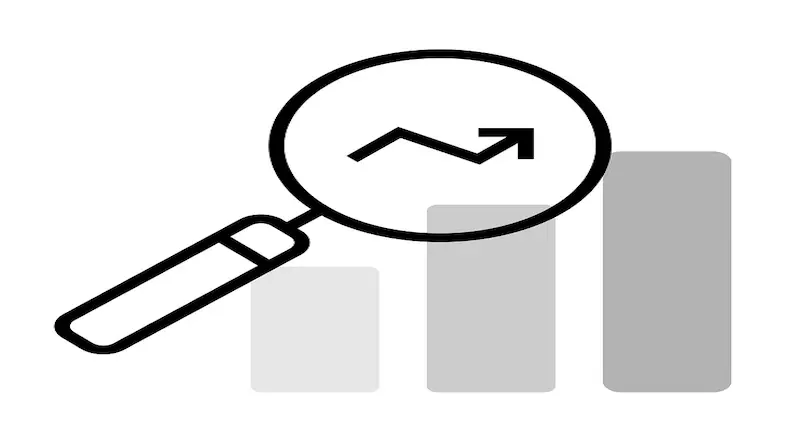Php
We didn't find any matches: , check your search and try again
Implementing a Logger System Using the Singleton Pattern in PHP
In this article, we'll create a simple logger system using the Singleton Pattern in PHP. This logger will allow you to log messages to a file, ensuring that there is only one instance of the logger throughout your application. Step-by-Step Implementation Step 1: Create the Logger Class We'll start by defining a Logger class that follows the Singleton Pattern. This class will have metho
Data Structures in PHP: Stacks, Queues, Linked Lists & SPL
Data structures are an integral part of programming, offering efficient ways to store and organize data. As PHP evolves, understanding how to implement and utilize common data structures like Stacks, Queues, and Linked Lists will make you a more proficient PHP developer. PHP 8 provides a range of options, from manual implementations to built-in SPL (Standard PHP Library) classes that offer high pe
SOLID Principles in PHP: A Developer’s Guide to Clean Code
The SOLID principles are a set of five fundamental design principles in object-oriented programming aimed at improving software design, making it more understandable, flexible and maintainable. These principles are especially relevant for developers working with PHP and similar languages. Let's dive into each principle, exploring its meaning and how it can be applied effectively in PHP. 1. S
Mastering Dynamic Programming in PHP: A Deep Dive into Classic Algorithms
Dynamic Programming (DP) is a powerful technique used to solve complex problems by breaking them down into simpler subproblems. It is particularly useful for optimization problems, where the goal is to find the best solution under given constraints. DP is often seen in algorithms that require making decisions at multiple steps, where solutions to subproblems are reused to avoid redundant calculati
Mastering Graph Algorithms in PHP: Implementing Traversals and Shortest Path Algorithms
Graphs are one of the most powerful and flexible data structures in computer science, widely used for solving problems like shortest path finding, network analysis, and much more. In PHP 8, developers can leverage modern language features and optimized approaches to implement and optimize graph-related algorithms. In this article, we will explore graph data structures, common graph traversals, an
Advanced Sorting and Searching Algorithms in PHP: Quick Sort, Merge Sort, Heap Sort, and Binary Search Trees
Sorting and searching are foundational operations in computer science. Understanding the efficient algorithms for these tasks can significantly enhance the performance of your applications. In this article, we’ll explore three advanced sorting algorithms — Quick Sort, Merge Sort, and Heap Sort — and dive into implementing Binary Search Trees (BST) in PHP 8. We’ll include clear explanatio
35% OFF
VW 101 cm (40 inches) Playwall Frameless Series Full HD Android Smart LED TV VW40F2 (Black)
₹12,999
₹19,999
Optimizing a Product Catalog Microservice with Profiling Tools in PHP Using DDEV and Visual Studio Code
In this article, we will enhance the product catalog microservice we built earlier by integrating Xdebug for profiling, specifically tailored for development in Visual Studio Code (VS Code). We will include detailed setup instructions, ensuring a smooth experience while profiling your application. Overview Key Components PHP 8: The programming language for our microservice. MySQL: The database
Code Profiling and Performance Optimization of an Existing PHP Project
As applications grow in complexity, ensuring optimal performance becomes critical. Code profiling and performance optimization are essential practices that help developers identify bottlenecks and improve the efficiency of their PHP applications. In this article, we will explore the tools and techniques for code profiling and performance optimization in PHP 8. What is Code Profiling? Code profi
Advanced OOP Features in PHP: Final Classes, Magic Methods, and Late Static Binding
Object-Oriented Programming (OOP) is a programming paradigm that uses objects and classes to design and structure code. PHP, especially in its latest iteration, PHP 8, provides several advanced OOP features that enhance its capabilities and allow for more robust and maintainable code. In this article, we will explore three advanced OOP features in PHP 8: final classes, magic methods, and late sta
Introduction to Caching and Setting Up Redis in PHP 8
Caching is a fundamental technique used in software development to enhance performance and efficiency by storing frequently accessed data in a temporary storage layer. In PHP 8, caching can significantly reduce load times and improve the overall user experience of web applications. This article will provide an overview of caching, its benefits, and common use cases. What is Caching? Caching inv
Implementing a Redis Cache for Product Catalog Data in PHP
Caching is a vital technique for improving application performance, especially in e-commerce platforms where product catalog data is frequently accessed. By using Redis as a caching layer, you can significantly reduce database load and improve response times for users. In this article, we’ll walk through the steps to implement a Redis cache for product catalog data in a PHP 8 application. What
Implementing a Notification System Using the Observer Pattern in PHP
The Observer pattern is a powerful design pattern that promotes a one-to-many dependency between objects. This pattern is particularly useful in scenarios where changes in one object need to be reflected across multiple objects. A classic use case for the Observer pattern is in building a notification system, where subscribers (observers) are notified of changes in a publisher (subject). In this
9% OFF
Samsung Galaxy S24 Ultra 5G AI Smartphone (Titanium Gray, 12GB, 512GB Storage)
₹1,31,999
₹1,44,999
When and How to Use Each Design Pattern in PHP
Design patterns are proven solutions to common problems in software design. In PHP 8, these patterns can enhance code readability, maintainability and scalability. In this article, we’ll explore some of the most common design patterns, when to use them and how to implement them in PHP 8. 1. Singleton Pattern When to Use Use the Singleton pattern when you need to ensure that a class has only
Exploring Design Patterns in PHP 8: Strategy, Observer and Decorator
Design patterns are essential tools for software developers, providing proven solutions to common problems. In PHP 8, leveraging design patterns can lead to more maintainable, scalable and flexible code. This article will explore three key design patterns: Strategy, Observer and Decorator. We will delve into their principles and provide practical examples to illustrate how they can be implemented
Implementing Design Patterns in Real-World PHP Applications
Design patterns are proven solutions to common software design problems. They help improve code readability, maintainability and scalability. In this article, we'll explore how to implement some of the most commonly used design patterns, Factory, Singleton and Dependency Injection, in real-world PHP applications using PHP 8. 1. Factory Pattern Scenario Imagine you’re developing an e-commerce
Introduction to Design Patterns: Factory, Singleton and Dependency Injection
Design patterns are essential tools for developers looking to write clean, maintainable and scalable code. In PHP 8, leveraging design patterns can significantly enhance your software architecture. This article introduces three fundamental design patterns: Factory, Singleton and Dependency Injection, explaining their purpose, use cases and providing practical examples. 1. Factory Pattern What i
Designing Efficient Schemas for Web Applications
The design of an efficient database schema is crucial for the performance, scalability and maintainability of any web application. A well-designed schema ensures that your web application can handle large volumes of data, retrieve information quickly and grow with the increasing needs of your users. This article explores best practices for designing efficient schemas, focusing on the balance betw
Introduction to PHP 8 and Key Differences from PHP 7
PHP 8, released on November 26, 2020, introduces significant improvements and new features that enhance performance, syntax and overall developer experience. This version emphasizes performance optimizations, new language features and better error handling, streamlining the development process and providing developers with more tools to write clean, efficient code. Key Differences Between PHP 8 a
49% OFF
Redmi Xiaomi 108 cm (43 inches) 4K Ultra HD Smart LED Fire TV L43R8-FVIN (Black)
₹21,999
₹42,999
AES Encrypt & Decrypt
Advanced Encryption Standard, where we use AES-256 to encrypt the data with Cipher. Encrypt and Decrypt approach taken is 'Cipher Block Chaining' method 'AES-256-CBC'. AES Encrypt We would have the 'Secret' stored in a file which is other than the web root. $key = hash('sha256', $secret, true); Hash the 'Secret' with sha256, this gives you the 'Key' which will be used to openssl encrypt. A
Configuring & Debugging Drupal on PHPStorm with XDebug on Ubuntu
Debugging the code is one of the important process for a developer, So now this article will help you to configure the Phpstorm for debugging the Drupal 7 application with the help of xDebug. The configuration made in this article refers specifically to the Ubuntu machine, which has Apache2 webserver running and xDebug installed. Initally open terminal and check the php version $ php -v you
What Drupal offers as Responsive Web Design within Core
In this article, we gonna see What Drupal offers as Responsive Web Design within Drupal Core for developers. While Drupal 8 was out and it had a buzz of being responsive, mobile friendly. And yes, the Internet is on the verge of being dominated by smartphones and Drupal needs to be prepared.Mobile friendly will also mean the content is first. From a big screen to a little screen, elements would lo
Know why Symfony framework was picked by Drupal
In this article, we gonna see why Symfony was picked for Drupal and what it changes for developers. As we all know PHP evolved rapidly in the past years and unfortunately, Drupal adjustment to this development was not satisfying, especially in the case of software engineering patterns adoption. And that is one of the reasons why Drupal Developers had to come up with creative ways to deal with such
Understand why Twig is replacing PHP Template in Drupal
A completely new template engine is introduced in Drupal. The templating system in all previous versions of Drupal is using theme_* functions and PHP-based *.tpl.php files. Now, this has been completely replaced in Drupal 8. Instead of using theme functions and theme template files, Drupal is now using the Twig templating system. Twig is a PHP-based compiled templating l
Usage of Local Php Security Checker for Drupal Applications
In this article, we are going to see how the Local PHP Security Checker library will make people's lives easier during the development and code review process. To make developer life easier, developers look for tools or libraries which can automated security review. Here comes the Local PHP Security Checker library, which checks for any known vulnerabilities in the package dependencies. This can
76% OFF
TCL 189 cm (75 inches) Metallic Bezel-Less Series 4K Ultra HD Smart LED Google TV 75V6B (Black)
₹61,990
₹2,54,990
Usage of PhpStan on Github via Pull Request for Drupal Applications
In this article, we are going to see how some tools and libraries will make people's lives easier during the development and code review process. We have a similar helpful article related to Phpcs, have a check of this. To make developer life easier, developers look for tools or libraries which can automated code review and if needed make any corrections in the code automatically. Here comes the
How to work with Twig Templates in Drupal?
In this article, we are going to see how a developer can work with Twig templates and how to override templates (if needed) and create template suggestions with hooks, so that templates could be easily managed. Basically drupal allows people to override the existing twig templates, so that people can fully have control on the html generated via the custom theme. First thing, we need to make sure
Quick reference of Code Reviews for Drupal Application
In this article we are going to see how your Drupal team can do code reviews and available tools or libraries which help people in the team to do the code reviews seamlessly. It’s pretty important to follow a few guidelines as well, so that all people or developers in the team are on the same page. Firstly, for the code reviews to be at their best, the committed code should be more organised b
Usage of PHPCS on Github via Pull Request for Drupal Applications
In this article, we are going to see how some tools and libraries will make people's lives easier during the development and code review process. And to make developer life easier, developers look for tools or libraries which can automated code review and if needed make any corrections in the code automatically. Here comes the PHP codesniffer and Drupal coder module. If you are maintaining your
Profiling Drupal Performance with Webgrind and Xdebug
Xdebug Profiling is all about measuring the performance of PHP code. In this article you gonna see how your measure the performance of your php code using webgrid and the xdebug. Requirements: Xdebug, with profiler enabled Webgrind Xdebug Addon plugin for browser 1. Xdebug with profiler enabled For setting up the environment, edit the php.ini file and add following lines. xdebug.profiler_en
How to run PHPUnit test cases on your local machine for Drupal
Running PHPUnit tests helps ensure that your Drupal module behaves as expected and provides a reliable way to identify and fix issues during development. To run PHPUnit test cases on your local machine for Drupal, follow these steps: Install PHPUnit and its dependency: Make sure you have PHP and Composer installed on your local machine. If you don't have PHPUnit installed, you can install it u

